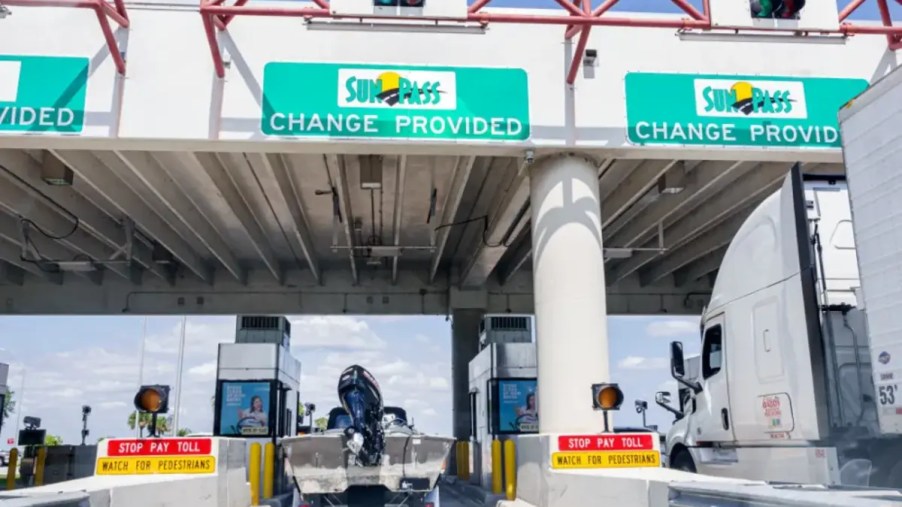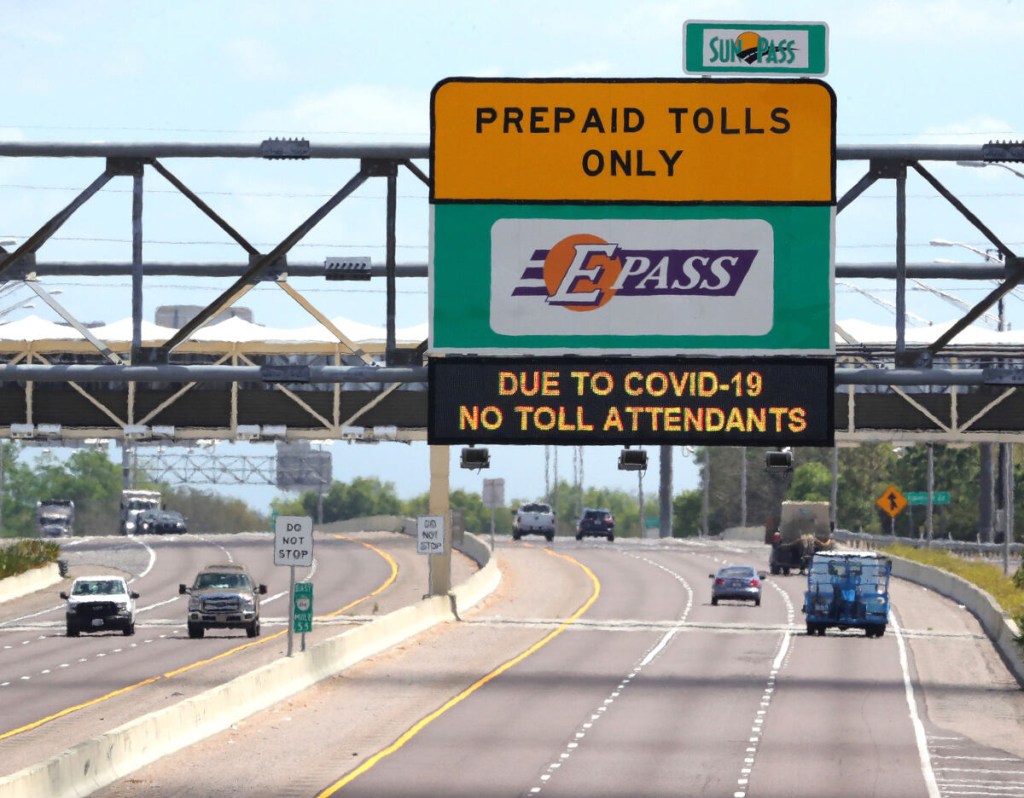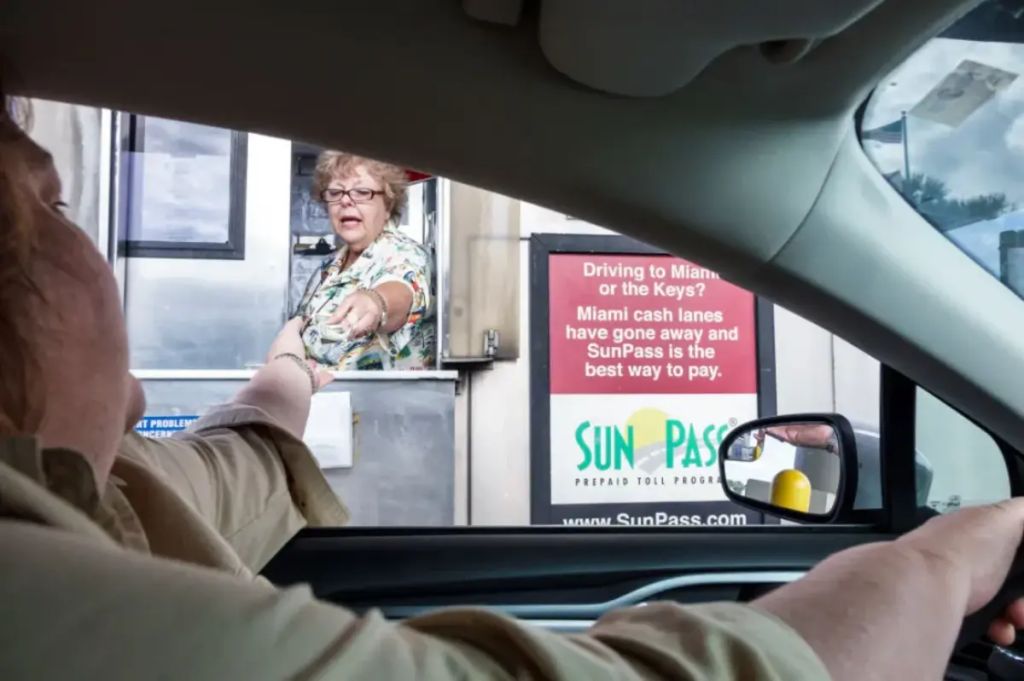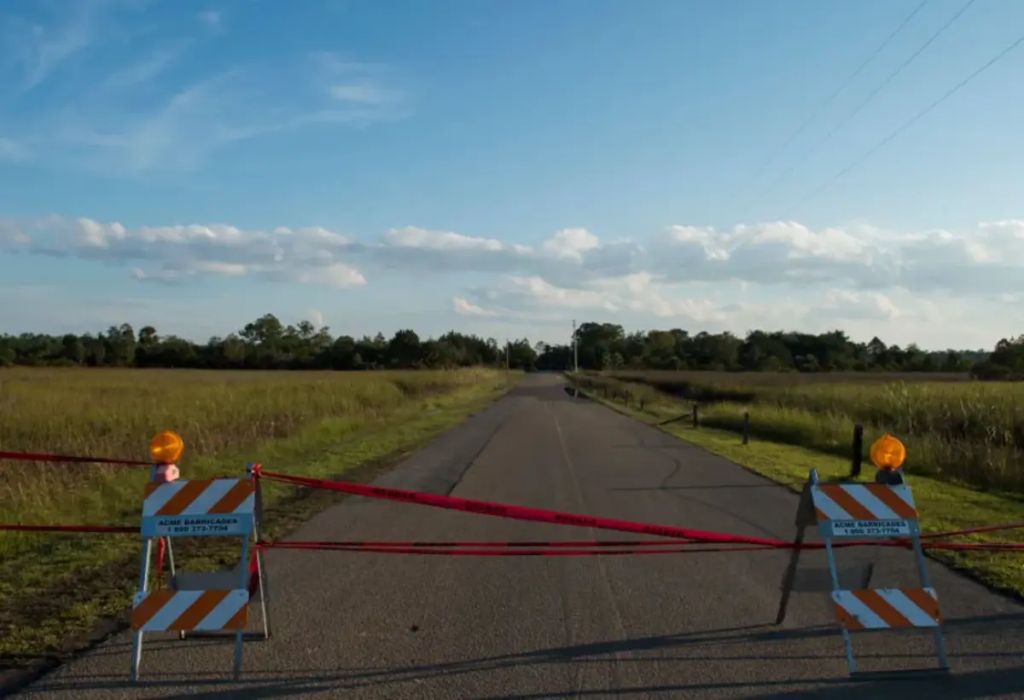
Report: Florida Has a Secret Surveillance System at Toll Roads Tracking You and Your Car
Florida has the most toll roads of any state in the U.S. As of June 2022, there are 719 miles of toll roads in the Sunshine State with Orange County alone having over 150 miles of them. Now we know why, and it’s not for the revenue. Actually, it is for the revenue, but it is also because police are gathering information about you at toll booths hiding secret surveillance systems to track both you and your car. And it seems that most of the Florida citizenry isn’t even aware of this.
Who discovered the Florida toll roads surveillance system?

USA Today has been tracking reports of the secret surveillance program for over six months. In that time, it found that there is a database collecting vehicle and driver information. Both the SunPass and EZ Pass toll networks are doing it. Florida’s Law Enforcement Notification system called the “Black List,” gathers information through those convenient transponders.
On its face, this is probably a good thing for law enforcement to have. It makes it much easier to track Amber Alert suspects, stolen vehicles, and cars involved in criminal activity. Florida Police can request information from the database for these circumstances.
Who has access to drivers’ private information?

And that’s the problem. Police can request information and then add any vehicles it chooses to the system, whether a crime was committed or not. Legally, there are no boundaries for police information requests. And the other issue is that Florida is mum about the system in general. It doesn’t want anything related to its tracking system divulged.
All requests for information from USA Today to the Florida Department of Transportation were denied. It even justified not disclosing anything about the tracking by citing a public records law in the books. But the specific law has never been provided, and multiple attorneys said that this type of law if it even exists, doesn’t apply in this circumstance.
So all of this reeks of privacy concerns for all of Florida, and its tourism industry. Any and all traveling on toll roads now have private information stored in Florida’s surveillance system. But Lee Tien, a California attorney for the nonprofit Electronic Frontier Foundation, had a much more ominous concern.
Tien told USA Today, “For many people, they’re like I’m nobody, who the hell cares about me?’ But part of what’s the case about this kind of routinized, ubiquitous surveillance is that they don’t have to care about you at first. They just collect as much data as possible, and then ask who’s doing interesting stuff,” he said.
Why is surveillance at toll roads such a horrendously bad idea?

So initially, probably not a lot will come from the information collected. But over time, the police can delve into your information for any number of reasons with impunity, whether legitimate or not. Yes, most of our information is out there somewhere. But what Florida is collecting should not be used against you. The laws, which are nonexistent, should be very strict about who can access this data, and how it can be used.
And the state mustn’t be shielded from releasing information about what the system is, how it tracks our data, who gets access to it, and what protections we have for that information. The system is paid for by the public, and those overseeing it are elected by the public, so there is no law, excuse, or reason for the Florida government to be hiding this information.
Recently, it has come to the attention of the legislature that the excessive toll fees might not be the best outcome for those making wages at its many attractions. So to help those making $15 an hour and also to encourage Floridians to keep travailing the toll roads, the Florida legislature recently passed a bill lowering tolls for heavy users. And Florida justifies the tolls, whether low or high because it has no income tax or inheritance tax, says UFC professor Jim Clark, proving the state will get its fair (or unfair) share one way or the other.
Updated: 6/8/2023
RELATED: How Does E-ZPass Work and When Was It Invented?
Related post url:



